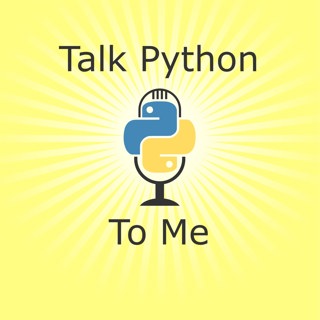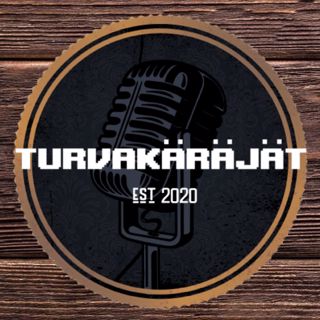
#399: Monorepos in Python
Monorepos are contrary to how many of us have been taught to use source control. To start a project or app, the first thing we do is create a git repo for it. This leads to many focused and small repositories. A quick check of my GitHub account shows there are 179 non-fork repositories. That's a lot but I think many of us work that way. But it's not like this with monorepos. There you create one (or a couple) repositories for your entire company. This might have 100s or 1,000s of employees working on multiple projects within the single repo. Famously, Google, Meta, Microsoft, and Airbnb all employ very large monorepos with varying strategies of coordination.
18 Tammi 20231h 10min

#398: Imaging Black Holes with Python
The iconic and first ever image of a black hole was recently released. It took over a decade of work and is a major achievement for astronomy and broadens our understanding of the universe for all of us. Would it surprise you to know that Python played a major part in this discovery? Of course it did, and Dr. Sara Issaoun is here to give us the full story.
14 Tammi 202358min

#397: Evaluating New Open Source Tech Panel
The beauty of open source software and libraries is that you're not stuck with a single option some vendor is offering. This is especially true when that support is poor and antiquated. Almost any capability you think of has multiple options even for a single language such as Python. Just think about how many web frameworks you can pick today.
5 Tammi 20231h 3min

#396: AI Goes on Trial For Writing Code (crossover)
For links and very detailed show notes, please view [the original episode page](https://pythonbytes.fm/episodes/show/312/ai-goes-on-trial-for-writing- code) over on Python Bytes. Thanks for listening!
30 Joulu 202237min

#395: Tools for README.md Creation and Maintenance
If you maintain projects on places like GitHub, you know that having a classy readme is important and that maintaining a change log can be helpful for you and consumers of the project. It can also be a pain. That's why I'm excited to welcome back Ned Batchelder to the show. He has a lot of tools to help here as well as some opinions we're looking forward to hearing. We cover his tools and a bunch of others he and I found along the way.
22 Joulu 20221h 13min

#394: Awesome Jupyter Libraries and Extensions in 2022
Jupyter is an amazing environment for exploring data and generating executable reports with Python. But there are many external tools, extensions, and libraries to make it so much better and make you more productive. On this episode, we are going to cover a ton of them. We have Markus Schanta, the maintainer of the awesome-jupyter list on the show and we'll highlight a bunch of Jupyter gems.
15 Joulu 20221h 2min

#393: Space Science with Python
Space science is one of the few sciences that can spark wonder and imagining in almost anyone. It also happens to be the domain of Python with many missions, telescopes, and analysis happening with Python playing a major role.
8 Joulu 20221h 3min

#392: Data Science from the Command Line
When you think data science, Jupyter notebooks and associated tools probably come to mind. But I want to broaden your toolset a bit and encourage you to look around at other tools that are literally at your fingertips. The terminal and shell command line tools. On this episode, you'll meed Jeroen Janssens. He wrote the book Data Science on The Command Line Book and there are a bunch of fun and useful small utilities that will make your life simpler that you can run immediately in the terminal. For example, you can query a CSV file with SQL right from the command line.
2 Joulu 20221h 11min









